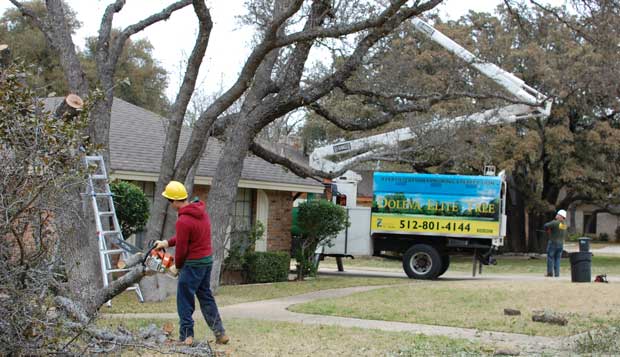Fake degrees are frequently purchased by people to help them get ahead. These fake degrees can be utilized by employers, colleagues or family members to impress. However, this practice is not legal and could be detrimental to society.
Using Veblenian theory, it is possible to study the motivations for people buying fake degrees. Degrees serve instrumental and ceremonial functions and grant excludable, however non-rival property rights such as abilities, signaling, and status.
The reasons for buying fake degrees
Buying fake diplomas has become a more frequent occurrence in the present day. While the vast majority of students seek to obtain their degrees through legitimate channels but there are a few who choose to pursue the illegitimate method for various reasons. Many people buy fake degrees in order to fool others into believing their academic credentials to gain financial benefits or career advancement. Others simply wish to save the expense and time involved with pursuing a real degree.
In certain instances, buying fake diplomas may aid people in overcoming the obstacles in their lives or families that would otherwise prevent them from reaching their educational goals. If a person has well-educated parents, they might push their child to obtain an education at a university. In these situations, the motivation to buy a fake degree can be a way to please one’s parents and keep their social standing.
In other situations, individuals purchase fake degrees to increase their self-esteem or gain a competitive edge. An fake degree can be helpful to anyone who is working in a profession that requires a degree to be able to get a job. Additionally, a lot of people utilize fake degrees as a way of motivational imagery to encourage people to put in the effort and achieve success. This is particularly important for people who have had academic difficulties.
Fake degree buyers’ profiles
The majority of people who buy fake degrees do it because of various motives. Some are trying to boost their resume or social media profile or profile, while others could be attempting to defraud an employer. Some simply want a better job or advance in their current role. The number of people who do this is increasing regardless of the reason.
In a market of fake credentials around the world, it is easy to discover fake diplomas issued by colleges that don’t exist that offer bachelor’s degrees, master’s degrees, and even Ph.D. Fake universities often lack the physical location, faculty photos and accreditation bodies.
It’s difficult to determine whether these companies https://lambanggiagiare.net/ are honest. For example, one Axact-affiliated university claimed to offer the service, but the letter confirming its transcripts contained the address of a PO box located in Arizona.
Gollin suggests that people conduct their own research in order to cut down on the number fake degrees. He once tracked down a degree mill which sold fake certificates that were issued by Saint Regis University. He suggests that a government-run site could compile a list legitimate institutions and notify users when they attempt to access fake websites for universities. He says a similar solution could be utilized for counterfeit money.
Fake degrees and their impact on society
Fake degrees are a multi-billion-dollar industry that could cause damage. They can impact a company’s reputation, operations, and even their legal standing. Fake degrees are a major issue in the academic world, yet they have not received much recognition despite their significance. This paper seeks to address this issue by studying the consequences of fake degrees using tools from the economics such as club theory and the function of status for diplomas. We also examine the consequences of fake degrees in the marketplace for legitimate ones.
This paper examines the emergence of fake degrees within a global market, and offers an analytical framework for understanding the impact they have on society. The paper starts by defining the key terms used in this context such as “fake degree” and “diploma-mills”. It then gives a brief overview of the history of fake diplomas and the causes that have led to their current growth. Finally, it outlines the benefits and costs of this practice from an economic perspective.
To improve their chances of finding work, a growing number of people are buying fake degrees. A few of them may be illegal immigrants or low-skilled earners, whereas others are professionals with a high education. Media exposes politicians and executives for making false claims that they have earned educational credentials. The revelations result in the public to lose faith in the institutions that issue these credentials.
Identifying fake degree buyers
There is a lot of awareness that fake degrees can be problematic. But, they’re usually difficult to identify. The reason is that the degrees are designed to be as close as they can to authenticated real ones. It’s therefore important to be able to spot fakes and avoid them at any cost.
There are many motives for someone to buy fake degrees, from inability to pay university fees to a desire for social status. In some instances it could be a method of getting the job they want. But it is crucial to keep in mind that acquiring fake degrees can result in serious consequences. For engineering and healthcare the use of fake degrees could put lives at risk.
Another issue is that fake degrees can be very easy to obtain. George Gollin is a member of the Council for Higher Education Accreditation. He asserts that diploma mills are operating around the world and selling fake degrees. In addition, Gollin claims that some universities are in fact working with these firms.
Fake degrees pose a serious issue and they can cause serious problems for the hiring industry. A study has revealed that one third of employers fail to verify the qualifications of candidates This is an alarming statistic.



